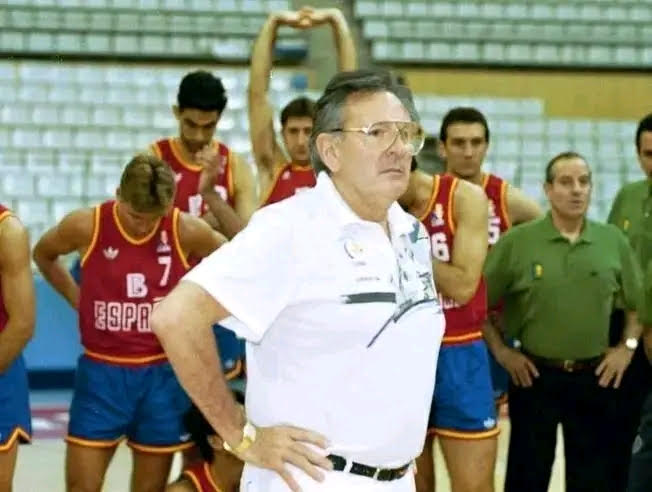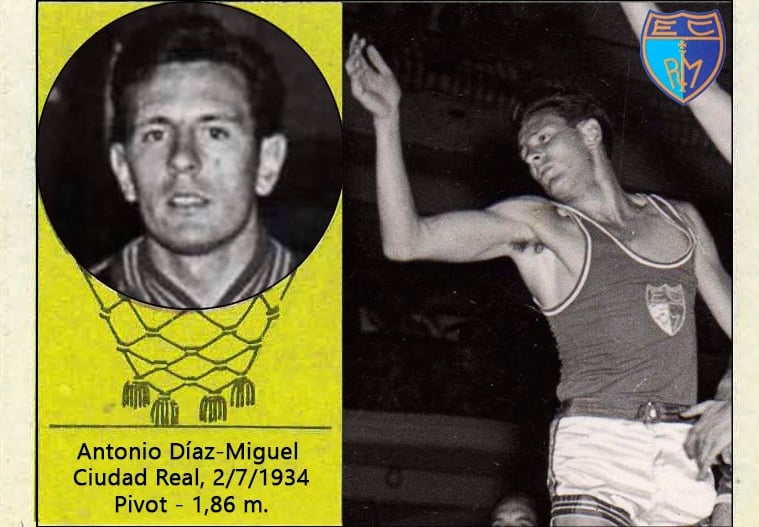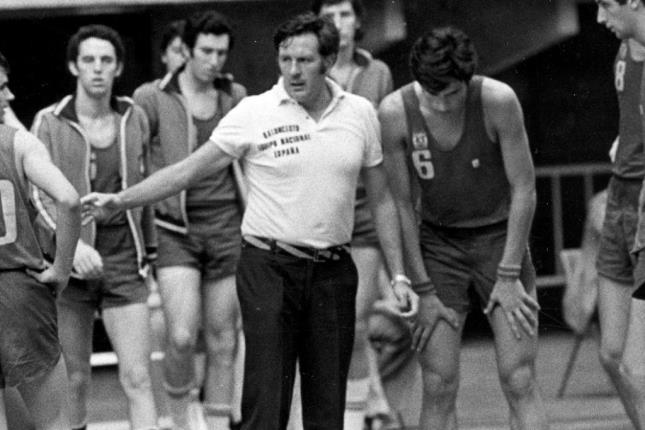
Antonio Díaz Miguel
The Legacy of Spanish Basketball
RETROCOACHES
Antreas Tsemperlidis
4/15/20254 min read
Antonio Díaz Miguel, born in 1934, was a towering figure in the history of Spanish basketball. Twenty-seven (27) years in a row at the helm of the national team with participation in 13 EuroBasket, 4 World Cup, and 6 Olympic tournaments. The numbers are shocking and seem extraordinary in today's era, where everything is judged on quick results alone and patience seems like a forgotten virtue, but Antonio Díaz Miguelwas not an ordinary coach.
With an appearance more akin to a professor, the Spaniard was the one who definitively shaped the competitive identity of the sport in his country, with the famous Spanish fast break being his signature contribution to the sport. After a notablel playing career, which brought him to the Real Madrid roster and earned him 27 caps with the national team, Díaz started his coaching journey in the Basque Country with the Bilbao Eagles, where he managed to gain promotion to the top league. His work caught the attention of the Spanish Federation and soon he became an assistant to head coach Pedro Ferrándiz. After Spain's disastrous performance in the 1965 EuroBasket held by the Soviet Union, Ferrándiz was dismissed, and the Federation asked Díaz to coach the team in a tournament in Amsterdam while negotiations continued with the leading candidate, American Ed Jucker. Eventually the temporary status of his role became permanent when Jucker left the Iberians hanging to take over the team of Cincinnati in the NBA. With no other strong options available and time running out, the Spanish Federation turned to Díaz and officially handed him the reins of the team.


However, the highlights were the two consecutive silver medals and victories over Díaz's personal nemesis. While in 1983, in Limoges, the Yugoslavs weren't at their best, and Spain achieved a tough victory in the second round on their way to the final, in 1984 in Los Angeles, Spain's victory in the semifinal was overwhelming, in a match where Díaz checkmated Mirko Novosel. The failure of the Spaniards at the 1990 World Cup in Argentina, largely due to Fannis Christodoulou’s performance, who played one of the best games of his career with the Greek national team, obliged the Spaniards to fight for consolation places in the mountains of Salta. This sparked the first voices calling for Díaz's departure from the helm, one he had occupied for twenty-five years already. The bronze medal at the 1991 European Championship in Rome, and particularly the prospect of the upcoming 1992 Barcelona Olympics, temporarily quieted the critics, but it was quite clear that Díaz's position was not as rock-solid as it used to in previous years. Success would extend his tenure further, and most believed Spain could be in the medal race. But in the "Pavelló Olímpic," the worst possible scenario unfolded for Díaz and his team. Spain was eliminated in the group stage, achieving just only one difficult win over Brazil and suffered a humiliating loss by twenty points to Angola, a game that the Spanish press dubbed "Angolazo," drawing parallels to Brazil's "Maracanazo" at the 1950 football World Cup. The journalists joyfully tore apart the national coach, with whom they had never had the best relations. A few days after the closing ceremony, the Federation sent Díaz a letter urging him to resign. True to the promise he had made, the coach refused the heroic exit and challenged the top brass of Spanish basketball to fire him. Both sides pushed things to the limit, filing lawsuits and eventually reaching a settlement.
Díaz didn't want to retire and in 1993 he returned to coaching, this time with the historic Cantú team. However, things didn't go well for the Spaniard, and after a poor start, he was relieved from the leadership of the once-European champion team. While many had nearly forgotten him, "Don Antonio" surprised everyone by returning to active coaching in 1996, this time entering the women's basketball realm with the Getafe team, where he went on to win his only domestic double. Three years later, after a brief battle with cancer, the great basketball professor sadly passed away on February 21, 2000, at the age of 67.
Egotistical, strong-willed, and uncompromising, but nonetheless a great coach, Antonio Díaz Miguel left his mark on an important era for Spanish basketball and he is perfectly entitled to believe that he gave identity to the sport in the country, paving the way for the greatest successes of "La Furia Roja” down the road.




It was in 1967 that Díaz's lifelong relationship with the national team began. A statement from the Spaniard during a time when he was facing intense criticism shows that, for him, the position of national coach was more than just a job. "I will stay with the national team until they fire me. I will never resign." Events showed that he was a man of his word. He worked tirelessly for nearly three decades, and with him, "La Furia Roja" enjoyed its first major successes, which remained the only ones until the emergence of the “Gasol generation”. But like all greats, Díaz had his nemesis in the blue jerseys of the Yugoslavs. Throughout the 1970s, in matches against the Plavi, he consistently found himself seeing the backs of players like Čosić, Dallipagić, Delibašić, and Kićanović. Even in the 1973 EuroBasket, which Spain hosted and where they became the first national team to defeat the Soviets, eliminating them from the final after eight consecutive golds for the "Bear," the ceiling for Spain was a second-place finish behind the Yugoslavs. Redemption for Díaz came with the dawn of the 1980s, when he found himself with an incredible crop of basketball players, including names like Epi, Corbalán, Fernando Martín, Margall, Jiménez, Villacampa, and the naturalized Chico Simbílio. Except for the Seoul Olympics, Spain was either on the podium or at least near it, taking fourth place at the 1981, 1985, and 1987 European Championships, as well as at the 1982 World Cup in Colombia, while reaching fifth place in Zagreb and at the 1986 World Cup.


